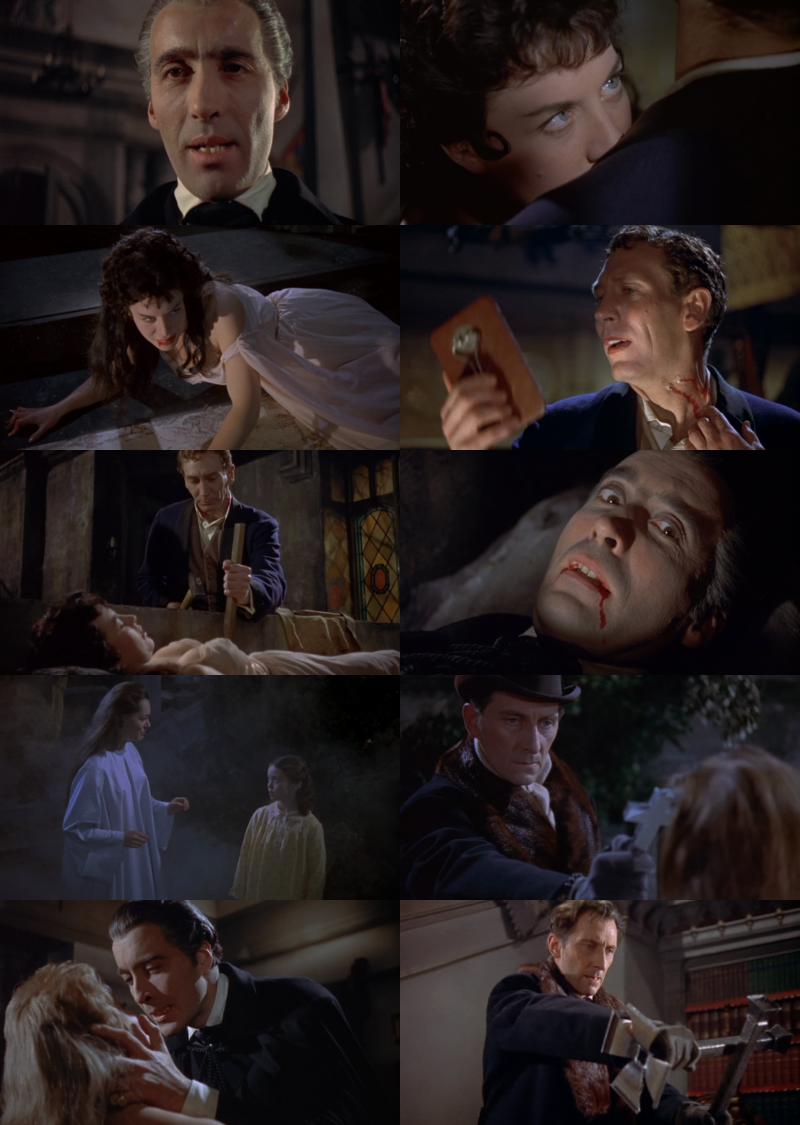Dracula (1931) (English & Spanish) & (1958) & (1979)
Oct 25, 2020 19:55:44 GMT
spiderwort likes this
Post by wmcclain on Oct 25, 2020 19:55:44 GMT
Dracula (1931), directed by Tod Browning.
Count Dracula relocates to England where he plans to bite every lovely young woman in the neighborhood. That's a plan? Aren't people going to talk?
Adapted from a successful stage play also starring Bela Lugosi and other cast members. The movie opens it up a bit, but it is still stagey, typical of an early talky. All biting and staking is off-scene.
Despite that it is nicely atmospheric and has unsettling moments: our loved ones transformed, subjected to fates worse than death.
Lugosi's performance made a big splash at the time but is harder to take now. He has definite menacing presence but his lines are all dreadfully overblown. Imitation began immediately: one of the young women mocks his flowery Hungarian speech. His perpetual evening dress and opera cape clash with the otherwise fine grubby settings. How did he get his laundry done in that isolated Transylvanian castle?
Renfield is creepier: bitten and now in an asylum, craving flies and spiders, tittering a loathsome yearning giggle. This is Dwight Frye, Fritz the assistant in Frankenstein (1931). Demented horror film minion was a small domain, but he was king of it.
One good scene has Harker trying to chase away a large troublesome bat. He's talking to Mina but we don't realize for a while that she's answering to the bat:
John: There's that bat again.
Mina: Yes?
John: Look out, he'll get in your hair!
Mina: Yes?
John: My, that was a big bat.
Mina: I will.
John: You will what?
Mina: Oh, I didn't say anything.
Said to be a disorganized production. Cinematographer Karl Freund (who soon directed The Mummy (1932)) did quite a bit of the directing, Browning being MIA.
The DVD includes an alternate score by Philip Glass, performed by the Kronos Quartet. It's flavor is both antique and dynamic, similar to his music for The Illusionist (2006).
The commentary track has points I hadn't considered: the story as dread of foreign corruption of women (why are our women acting so strangely?), blood contamination as a metaphor for syphilis, Dracula's wives as stylized prostitutes, and the Count's easy aristocratic domination of the working classes.
Also on the disc is the Spanish language version made at the same time: Dracula (Spanish) (1931).

Count Dracula relocates to England where he plans to bite every lovely young woman in the neighborhood. That's a plan? Aren't people going to talk?
Adapted from a successful stage play also starring Bela Lugosi and other cast members. The movie opens it up a bit, but it is still stagey, typical of an early talky. All biting and staking is off-scene.
Despite that it is nicely atmospheric and has unsettling moments: our loved ones transformed, subjected to fates worse than death.
Lugosi's performance made a big splash at the time but is harder to take now. He has definite menacing presence but his lines are all dreadfully overblown. Imitation began immediately: one of the young women mocks his flowery Hungarian speech. His perpetual evening dress and opera cape clash with the otherwise fine grubby settings. How did he get his laundry done in that isolated Transylvanian castle?
Renfield is creepier: bitten and now in an asylum, craving flies and spiders, tittering a loathsome yearning giggle. This is Dwight Frye, Fritz the assistant in Frankenstein (1931). Demented horror film minion was a small domain, but he was king of it.
One good scene has Harker trying to chase away a large troublesome bat. He's talking to Mina but we don't realize for a while that she's answering to the bat:
John: There's that bat again.
Mina: Yes?
John: Look out, he'll get in your hair!
Mina: Yes?
John: My, that was a big bat.
Mina: I will.
John: You will what?
Mina: Oh, I didn't say anything.
Said to be a disorganized production. Cinematographer Karl Freund (who soon directed The Mummy (1932)) did quite a bit of the directing, Browning being MIA.
The DVD includes an alternate score by Philip Glass, performed by the Kronos Quartet. It's flavor is both antique and dynamic, similar to his music for The Illusionist (2006).
The commentary track has points I hadn't considered: the story as dread of foreign corruption of women (why are our women acting so strangely?), blood contamination as a metaphor for syphilis, Dracula's wives as stylized prostitutes, and the Count's easy aristocratic domination of the working classes.
Also on the disc is the Spanish language version made at the same time: Dracula (Spanish) (1931).







